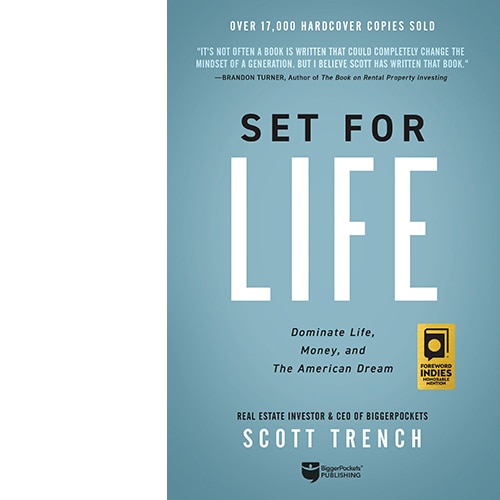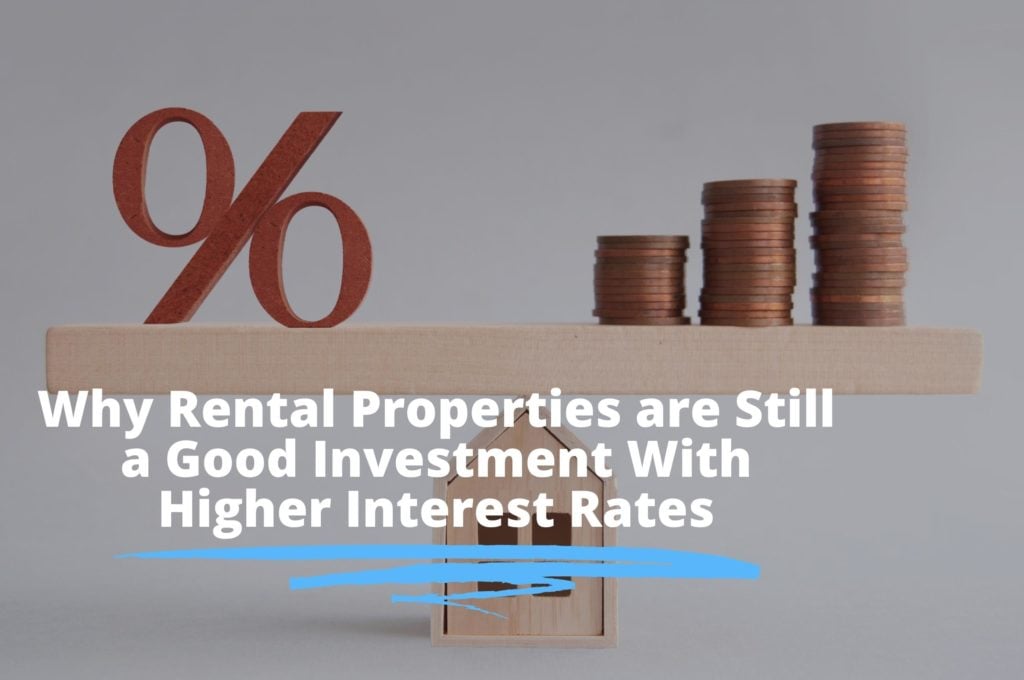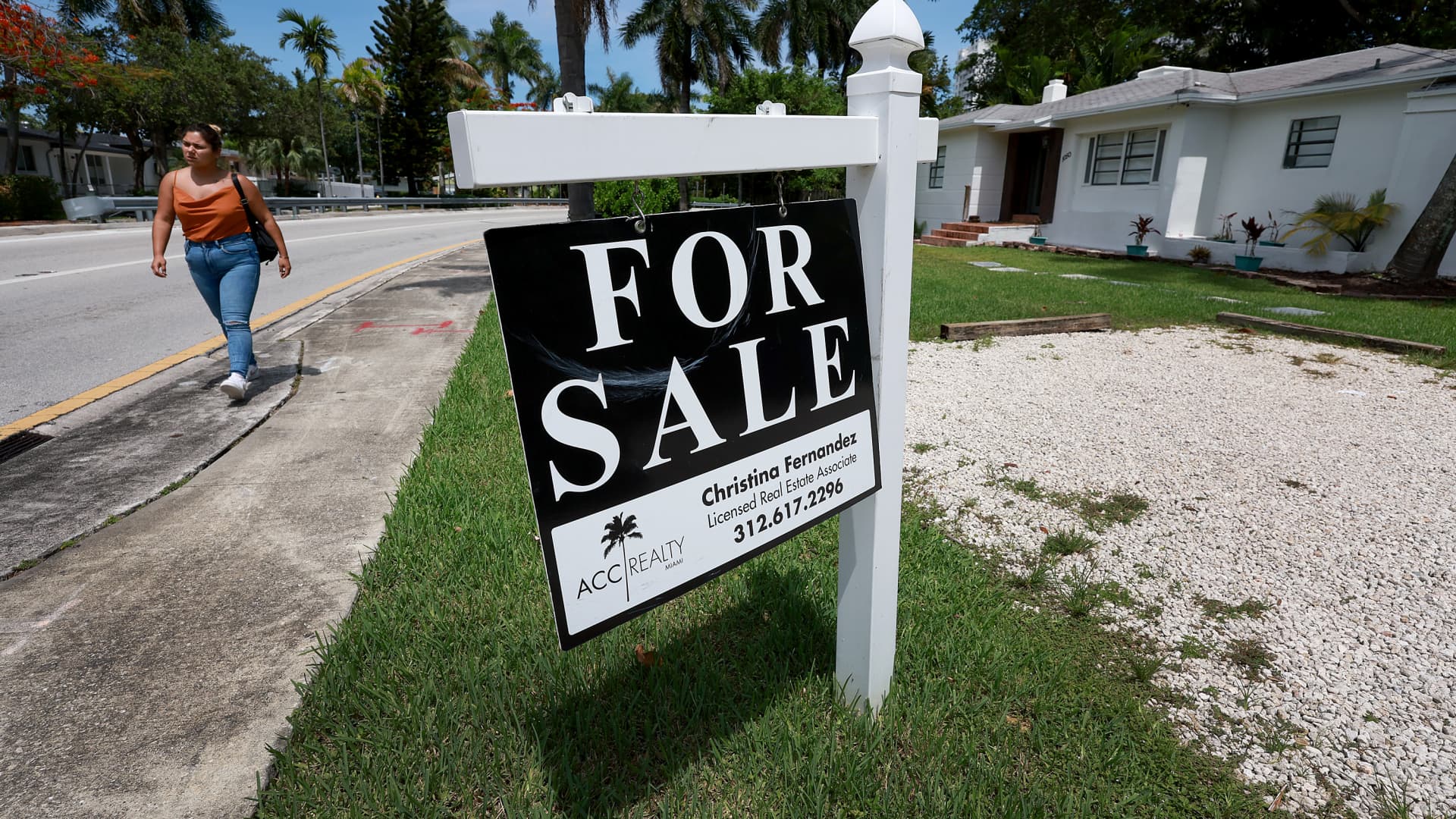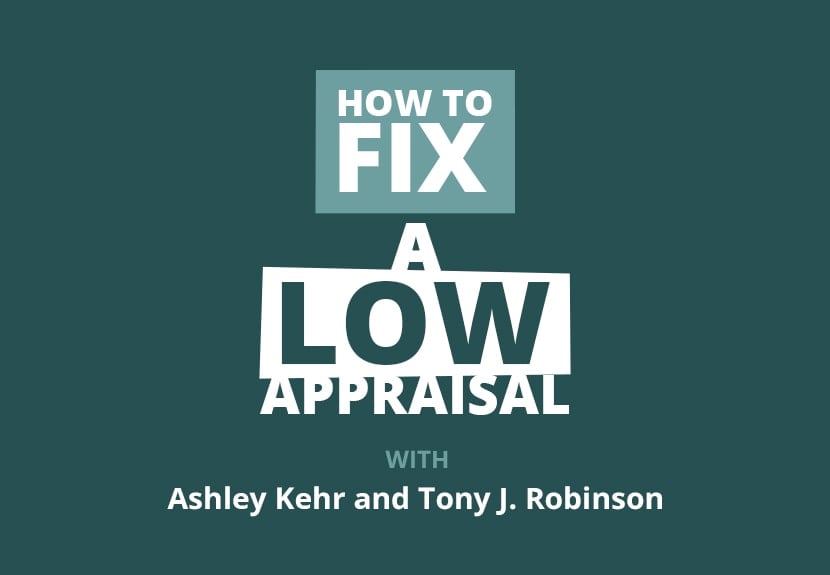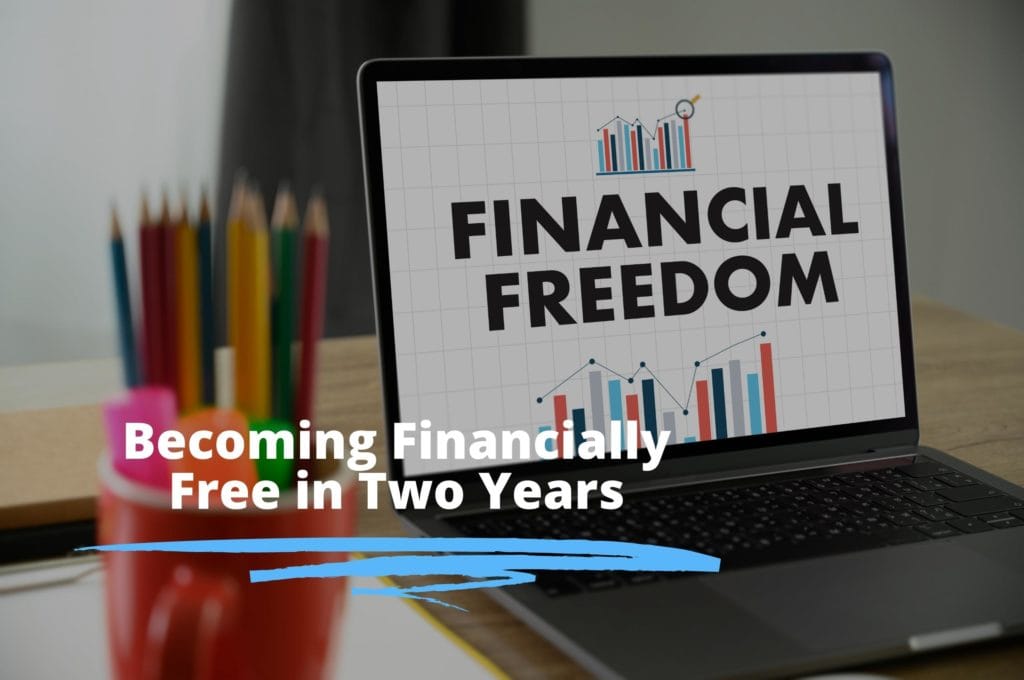Even financially free couples like Carl and Mindy need to reassess, and you may want to as well!
Mindy Jensen:
Welcome to the Bigger Pockets Money podcast, show number 316, Finance Friday edition, where Carl and I recap our big June spending. I have started to notice inflation at the grocery store. I don’t really notice inflation for clothing and shoes because I shop at the thrift store mainly. And I don’t really notice inflation for a lot of other things. I just don’t buy a lot of things.
Mindy Jensen:
But for food, I’m starting to notice that at the grocery store and I’d like to think I have a pretty good handle on our food budget and on food prices in general. And it seems like they are going up and up. And that can be scary if you’re paycheck to paycheck. Hello, hello. Hello. My name is Mindy Jensen and joining me today is my co-host, Carl. You might know him from 1500days.com or the Mile High Five podcast, but I’ve known him as Mr. Mindy Jensen for the last 20 plus years.
Carl Jensen:
This is the first time I’ve ever heard you refer to me as Mr. Mindy Jensen.
Mindy Jensen:
Oh, I say that all the time.
Carl Jensen:
Really? Oh, I’m okay with it. I mean, you bring home most of the bacon so you can call me whatever you want.
Mindy Jensen:
Oh good.
Carl Jensen:
Just no bad words, at least not in front of the kids.
Mindy Jensen:
Oh, I would never.
Carl Jensen:
Okay. Thanks.
Mindy Jensen:
In front of the kids. Carl and I are here to make financial independence less scary, less just for somebody else, to introduce you to every money story, because we truly believe financial freedom is attainable for everyone, no matter when or where you are starting.
Carl Jensen:
Whether you want to retire early and travel the world, go on to make big time investments in assets like real estate or start your own business, we’ll help you reach your financial goals and get money out of the way. So you can launch yourself towards your dreams. Wow.
Mindy Jensen:
Wow. That was smooth as silk.
Carl Jensen:
Yeah.
Mindy Jensen:
Usually Scott reads those words and he has been doing it for 300 episodes. So he has that memorized now, but that’s okay. You did a great job. Thank you, sweetheart. So Carl and I are here to talk about our June spending, which was the most expensive month that we have ever had. We spent, let’s open up our spending tracker, which you can follow along with every single month, every single day, if you’re really all that interested, at biggerpockets.com/mindysbudget. And I say Mindy’s budget, because I work at Bigger Pockets and you don’t. So we spent a whopping $11,995.70 this month, all in one month, which is a lot for us.
Carl Jensen:
Yeah. That hurts a little bit. But let’s flip over and say where most of that spending came from. Let’s see, we go …
Mindy Jensen:
It’s right here.
Carl Jensen:
Oh, okay.
Mindy Jensen:
Mindy highlighted it for you.
Carl Jensen:
Oh geez. Yeah. I can’t do anything.
Mindy Jensen:
Are you new?
Carl Jensen:
I need glasses. Yeah. I pretty much am new.
Mindy Jensen:
Get your classes then.
Carl Jensen:
$8,437.15 cents were travel expenses, which is quite shocking. And we had a slippery slope situation where our child decided to go on this school trip to Germany. We said, “Fine, if you want to go on this, we’ll pay for half. You have to cover the other half.” And then I started thinking, I’ve never been there. I’d really love to go to Germany. So let’s go over there and meet her, which is fine. We can shop for flights and get all that stuff and try to find budget accommodations and do all that stuff ahead of time.
Carl Jensen:
But it turns out, this tour company who will go unnamed, but they’re a big tour company, doesn’t book the tickets until like weeks before the actual trip. Keep in mind, this is an international flight and they booked it less than a month before the trip. So we were forced to book our stuff a month before the trip. So I think we paid a premium. Most of that 8,000.
Mindy Jensen:
You think we paid a premium? Let me confirm that for you.
Carl Jensen:
Yeah. I don’t know. I don’t frequently price flights to Frankfurt. It sounds like a tongue twister. Say flights to Frankfurt 10 times fast. What’s another German F-word? [foreign language], that’s a Volkswagen thing. Yeah. Yeah. So anyway, the flights were like, for the three of us. And then we had to buy another one for the daughter because of this other debacle with the store company. So we had to buy three round ship flights and a single flight home back from her. And that was weird, it was cheaper to buy her a round trip flight to go from Frankfurt to Denver and then back to Frankfurt and then to just ditch the second half than it was to buy one flight. So yeah, we ended up buying three and a half flights and I think that was close to $6,000, right?
Mindy Jensen:
That was over $6,000.
Carl Jensen:
Painful.
Mindy Jensen:
And what makes it so painful is that we couldn’t even fly or we couldn’t even shop for airlines. They didn’t tell us if they were going to fly Luftansa or if they were going to fly United or American or any number of other airlines. We couldn’t even start accumulating flight points. They just said, we will get to you when we get to you basically. So we weren’t able to really accumulate any points anywhere that would have worked out. I suppose we could have, going back now, we probably could have gotten those Chase Ultimate Rewards points and done a one-to-one transfer. That actually might have been a really good choice.
Mindy Jensen:
If anybody knows about the Chase Ultimate Rewards points, would that have been good? Because we did end up flying Lufthansa, which is a lovely airline. Everything worked out really, really well with the airline once we were there. We flew during some pretty awful domestic flight cancellation weekends. So we’re really thankful that we didn’t have any of those. We did go direct Denver to Frankfurt, without any sort of layovers or stops at all, which was my favorite way to travel. All in all, we had a good time.
Carl Jensen:
Wait, is it Frankfurt or Frankfurt, how I’ve been saying it?
Mindy Jensen:
Well, I’m American, so I say Frankfurt, because that’s how we roll.
Carl Jensen:
You’re mostly German though.
Mindy Jensen:
I’ve actually only been in Germany like 10 whole days, which occurred in June 2020.
Carl Jensen:
Okay.
Mindy Jensen:
It’s the first time I’ve ever set foot in the motherland.
Carl Jensen:
I do know, we have multiple German listeners and they will correct you because I think I’m right.
Mindy Jensen:
Okay. Well, if you want to correct me, you can send it to Carl, [email protected]
Carl Jensen:
Okay. So something we have never talked about, I’m going to ask you this right now, do you regret the trip?
Mindy Jensen:
I do not regret the trip. I wish we had more time to plan. And I say that like, we didn’t have a year and a half to plan the stupid trip. I wish I would have planned it a little bit better and maybe got a bunch of airline miles on Luftansa and United and American. And I mean, you can always use them someplace else or maybe you can’t, maybe we’ll just go back there. I wish we would’ve done it a little differently, but I’m glad that we went. It was a lot of fun.
Carl Jensen:
Yeah. I regret nothing. It was such a good trip … We saw-
Mindy Jensen:
Oh, thanks for setting me up like that, and then you, “I regret nothing.”
Carl Jensen:
No, no. I think there’s a lesson in here. We’ll tell you real quick what we did and why I don’t think we should regret it. We went to Berlin, that was four days. Then we rented a car. We drove as fast as our little Skoda could go. If you want to haul butt down the autobahn, a Skoda is not a good choice. We had that thing [inaudible] at like, what, 160 or 180 kilometers an hour, I think 110 miles per hour, which is not fast on the fast parts of the Autobahn.
Mindy Jensen:
No.
Carl Jensen:
So we took that thing to Munich after that for another like three nights. And then we came back, we stopped in Rothenburg on the way back and that’s it. I wish we would’ve had more time at both places, but especially in Munich. So back to my original question, I asked if you regretted spending that kind of money and you said no, and I don’t say no-
Mindy Jensen:
Oh, you didn’t ask if I regretted spending that money, you asked if I had any regrets.
Carl Jensen:
Okay. I guess that was my question then. Let’s go back to it then. Do you regret?
Mindy Jensen:
And that makes sense, this is a money podcast.
Carl Jensen:
It’s kind of the same thing. Do you regret the trip because we spent that much money on it or do you regret the money part of it?
Mindy Jensen:
I don’t regret the money. I wish we would’ve been able to save some money. I mean, how many times do we sit here and talk, both of us collectively, on our blog, on our podcasts, on our respective podcasts, we talk about money and saving money and saving money where you can. And we didn’t really have that opportunity. Although I think we could have saved more money if we would’ve tried a little bit harder.
Carl Jensen:
Yeah.
Mindy Jensen:
There’s a lot of information out there about how to earn miles and points and sitting down here talking to you about this was the first time it popped into my head, those Chase Ultimate Rewards, which are really fabulous rewards points. And we have the ability to get new Chase cards fairly frequently. I don’t think we’ve opened up a new one in the last 24 months. They have this five out of 24 rule. You could only open up five Chase credit cards in the last 24 months, I think. I’m pretty sure that’s still the same rule, but I don’t know, maybe it’s not. If you know for sure that, that’s changed, feel free to send us a note or comment in the Facebook group at facebook.com/groups/bpmoney. Would love to hear the updated.
Mindy Jensen:
If you have any tips for travel, saving money for travel, last minute tips when you have a specific deadline, a specific location that you’re going, a specific date like we had, if you have any off the wall tips, that’d be great too. But no, I don’t regret our trip and spending that much money. I mean $8,437 in one category that is not car is a lot, but let’s talk about what exactly that 8437 is.
Mindy Jensen:
That is the airfare, the hotels that weren’t booked on miles, which we do have boatloads of. That was all of our food, all of the restaurants, all of everything that would normally go into different categories. We put that all in travel. And the reason we did that and we did it consciously is because we would not have had those expenses at that level, if we had been at home. So groceries are more expensive because we’re not going to a real grocery store.
Mindy Jensen:
We’re going to a tiny little grocery store because we don’t speak the language, which is another, that’s a regret. We should have learned some German. We don’t speak the language and we don’t know where these other grocery stores are, so we just go to the little convenience stores and convenience stores always have higher prices. We went to restaurants, we went to, what’s the big brew house, brow house?
Carl Jensen:
Hofbrauhaus.
Mindy Jensen:
Hofbrauhaus, thank you. I always forget that. We went to the Hofbrauhaus and we got a great big beer. Well, did you post that picture of me holding two giant beers? I looked like such a lush.
Carl Jensen:
I did.
Mindy Jensen:
Yeah. Thank you. That’s great. You’re awesome.
Carl Jensen:
They’re light beers.
Mindy Jensen:
We drank a lot of beer in Germany. It was delicious. And I didn’t categorize that into different spending categories because we wouldn’t have been going out so much. We wouldn’t have been spending that much money if we had been at home. So we lumped it all into travel. And again, the reason we have so many different categories in our spending tracker is because if we had to, we could cut out travel altogether. Let’s say the stock market takes a big dump, like a 25% dip. Theoretically, of course, that would never happen the first quarter, the first half of 2022. Is it down 25% or just 22%?
Carl Jensen:
I think it’s like 22.
Mindy Jensen:
Yeah.
Carl Jensen:
It’s definitely a bear market.
Mindy Jensen:
Yeah.
Carl Jensen:
Over 20%.
Mindy Jensen:
Don’t get crazy. Don’t say 25. It’s only 22 and we’re recording this on July 4. I don’t know what the market’s going to do by the time this releases on July 7. However, the market has taken a big dump and there are a lot of categories we could cut out and get back into our normal spending threshold. So let’s look at some of, we did some math before we started this. Oops, let’s scroll down.
Mindy Jensen:
So we are in, this is the end of June that we are sharing numbers for. And the total spending that we have done thus far in 2022 is $46,484.79. Now, when we first extrapolated our FI number, what did we say that was going to be?
Carl Jensen:
40,000.
Mindy Jensen:
$40,000 for the whole year. And here is us going $6,000 over in six months, so that’s a lot. We looked at some of our expense lines and the biggest one that we could very easily cut out is travel. We have spent $17,000 in travel this year, and this is the first year after a pandemic, so we want to get out and see things. And yes, I’m not saying the pandemic is over. The pandemic is still going on, but we have been able to travel more this year than we have in the last two years. That’s a very easy cut, but that’s $17,000.
Mindy Jensen:
So without the travel expense, we’ve spent $29,424. Okay, well, we planned on 40,000, so that’s still at six months, we should be at $20,000, but we planned on $40,000 with no mortgage payments. How much have we paid in mortgage? Well, lucky you should ask that question. I anticipated that and I did the math and we have done $7,938 in mortgage payments. So without travel and without mortgage payments, the amount that we have spent this year in six months is $21,486.71.
Mindy Jensen:
So now we’re only $1,400 or actually you round that up to 1500, that number comes up all the time. It’s crazy how frequently the number 1500 pops up in our lives. We are $1,500 over our anticipated spending over the course of six months, which feels pretty good because we haven’t had to tighten our belts. We go out to dinner frequently. We go out to tap rooms with friends. We spend way too much on groceries and we live a pretty good life, without feeling like we are restricting ourselves. I mean, that’s what I think, what do you think?
Carl Jensen:
Yeah. I think that’s-
Mindy Jensen:
[inaudible] plant words in your mind.
Carl Jensen:
Yeah. I think that’s absolutely true. And this is something I say, I think every time I record. Every time we record, I say this. Sorry, I sound like a broken record, but we’re frugal for the things we don’t care about so we can spend on the stuff we do care about. The travels important to us. When we went to Munich and Berlin, we stayed close to the city center so we never had to get into a car. We walked everywhere or took bicycles and we paid a little bit extra for that convenience, but it was well worth it, because I don’t like to get in a car if I don’t have to. So it was great, but we’re pretty frugal. I’m about to order 20 tons of rocks to put in our yard and I’m going to move all of those myself, because I think it’s great exercise.
Mindy Jensen:
You heard it here. I don’t have to move any of those rocks. He’s going to move them all himself. I love that.
Carl Jensen:
Well, did I say me?
Mindy Jensen:
Yes.
Carl Jensen:
We, we, we.
Mindy Jensen:
No, no, no. They’re not going to cut that out. They said, you said you were going to do that all by yourself.
Carl Jensen:
There’s no I in rock.
Mindy Jensen:
There’s no I in team.
Carl Jensen:
I guess there’s no we in rock either, but yeah. But I don’t mind because I get a bunch of exercise from it. What are some other things we take care of our own lawn. I know some people absolutely hate mowing their lawn, but I really hate blowing their line button. I don’t mind it so much. I could put on my noise canceling headphones and catch up on the Bigger Pockets Money podcast.
Mindy Jensen:
Yeah. What is this episode? 316. So what do you have? 313 episodes to go.
Carl Jensen:
Yeah, I think so. I’ve listened to a couple. It’s pretty good. I like it. It’s too close. Yeah. What else? We do our own car maintenance. I don’t really like that, that much, but it’s faster to change the oil than it is to go to one of those places and sometimes, they screw it up. I cut my own hair, which looks so, so great.
Mindy Jensen:
Yeah.
Carl Jensen:
So I’ve paid like zero for haircuts for the past 10 years, at least. Right.
Mindy Jensen:
So, oh, it’s been longer than that. We’ve been cutting your hair. I, we, that’s a team effort.
Carl Jensen:
Yeah. So if you think of that, 100 times 20 bucks, that’s $2,000.
Mindy Jensen:
100 times 20, what are you 100 times 20 for?
Carl Jensen:
100 haircuts times 20 bucks with a tip and all that. At least 100 haircuts probably. No, a lot more.
Mindy Jensen:
Over what time period?
Carl Jensen:
Like one haircut a month for 10 years. That’s actually 120 haircuts.
Mindy Jensen:
You’ve been cutting your hair for like 20 years.
Carl Jensen:
Okay. So bump that up. That’s all our airfare. My haircuts bought us our airfare or most of it to Germany. But yeah, I think there’s something in that. I think you need to, at least our models to carefully consider where we spend so we can not spend on the things that we … I just totally messed it up. So we can spend on the things we really care about, but then save money on things that we don’t care so much about.
Mindy Jensen:
Well, let’s look at the things that we don’t care so much about. Oh, I don’t really want to because we haven’t really done this line at all. We need to work on that a little bit more.
Carl Jensen:
No, we have done. Here’s one entry right there. We’re looking at charitable-
Mindy Jensen:
And one over here, charitable contributions needs to be increased significantly.
Carl Jensen:
Yeah. We do, do some. I think we gave some money to Ukraine. We forgot to put that on there. Yeah. And we’ll certainly do more. I think our goal in life is probably to give in much bigger amounts. This is a whole other conversation, but I always think right now it’s the most spendy part of our lives. We have two children, but in like 10 years, they’ll be out of the house, I hope. They’ll be out of school, I hope. And then we can live super cheap and then we can give more of our money away.
Carl Jensen:
Now I still feel, we’ve done well, but still a little bit of shakiness and unease due to financial insecurity. So we’ll give and we’ll give big, but it’s probably a little bit further down the road. I’m not going to wait till I die, like Warren Buffet though. It’d be cool to see your money in action while you live, but we’ve gotten way off topic.
Mindy Jensen:
We have, but that’s something that we need to start discussing. We don’t need to discuss that right now and hash that out as people listen to us awkwardly discuss this. We’re going to stop that. But we will discuss this after the lights go down. Let’s look at our spending. If you look at our June spending, we only hit four red categories. And one of them was utilities by a dollar, which doesn’t even count. One of them was school. I don’t remember what I bought for $27, but it was a school expense that I had allocated zero to because it’s June and I didn’t think we’d actually be spending any money on school. So I think I just need to have $100 in the budget for school for every month. And then sometimes we hit it and sometimes we don’t.
Mindy Jensen:
Gifts, what gifts did we buy this past? We bought a lot of gifts in June. I can’t remember why, but we went $173 over the gift giving budget. And oh goodness, last month we went, we really need to up our gift giving budget because we have really gone over.
Carl Jensen:
In May, we had a family member graduate from school and we took the family out to dinner. So I put that in the gift category. That’s where that came from.
Mindy Jensen:
That’s right and I didn’t think of that when I was making my budget. That’s a learning opportunity and a research opportunity for everybody who is listening, who wants to make their own budget. Think ahead. I don’t know if you know this, but my projected is just a guess for a while. Because we haven’t been tracking our spending for so long, I don’t really have a good guess, a good gauge as to where my money is, where my money will be going this month. So I am now guessing based on, or estimating, let’s call it an estimation and not a guess.
Mindy Jensen:
I’m estimating based on the previous month. And that’s right, May was expensive. June was expensive. I think that maybe for gift giving, we need to bump that up to about $150 a month and see what happens, except for Christmas, which will be more.
Carl Jensen:
Yeah, it’s it feels good to be generous. I don’t mind spending money in that category at all. I think one of the gifts was we sent something to J. Money, Budgets Are Sexy. Congratulations, J. on buying it back.
Mindy Jensen:
Oh yeah. Budgets Are Sexy is now re-owned by J. Money.
Carl Jensen:
Yeah.
Mindy Jensen:
What else do we have? That’s right, I did send that. Our household budget, I think $200 a month in random household expenses is going to be our sweet spot. It feels like we have finally figured that out. Although I’m looking back, $1000, $2,000, we bought a couch. What did we buy in May? I don’t even remember. That’s kind of sad. What did I buy? I don’t even remember. And yet, I blew my budget way out of the water by $1000. Now I have to go back and research that.
Mindy Jensen:
We didn’t have any entertainment last month, but we were in Germany, so that was all entertainment. And again, that went into the travel expenses. So a lot of these numbers, the category numbers in June are artificially low because we were in Germany for 10 days. What else do we have? Healthcare is going to be ongoing until we figure that out. We are going to have that about $400 and I’m happy to come in a little bit lower. But overall, we had pegged it at 13,600 and we came in at 12,000-ish, just under 12,000. So we’re $1,600 below budget this month and it feels good to have a green month instead of a red month.
Carl Jensen:
Yeah.
Mindy Jensen:
Next month, I have us pegged at 9,200. I think I’m going to bump that up to 9,500.
Carl Jensen:
And it looks like a lot of this is coming from travel. We have one more big trip plan. We’re just going crazy. We’re going to be on an Oregon for some time.
Mindy Jensen:
We?
Carl Jensen:
Yeah, we.
Mindy Jensen:
We? I’m going to be here in Colorado.
Carl Jensen:
Yeah. After this, well, you’re coming out to California for a little bit.
Mindy Jensen:
Yes. Yes.
Carl Jensen:
So there is that, but then after that, we’re going to calm down. We’re not going anywhere for Thanksgiving. We’ll probably stay here for the rest of the holidays. We’re going to travel out to you for the Bigger BP Con. Is that what you all call it?
Mindy Jensen:
San Diego, BP Con, October 2 through 4. You can find more information about the Bigger Pockets Conference at biggerpockets.com/events.
Carl Jensen:
So I think we should talk about what goals we have for the second half of the year. What have we learned the first half?
Mindy Jensen:
We have learned that we don’t know how to make a budget.
Carl Jensen:
Yeah, but I think, for me at least, I think the keeping track is more important than the budget. The keeping track and especially the reflection part, like what we do now, this is probably our money date. I know certain couples do money dates where they’ll meet on a weekly or maybe monthly basis to review their numbers. And that’s exactly what we’re doing here. We’re just doing it in front of everyone. I don’t actually like budgets because that puts constrictions on your spending. You should spend thoughtfully, but that’s where what we’re doing comes in. We can review and consider if all our spending was thoughtful spending.
Mindy Jensen:
Ooh, I’m going to disagree with you and say, I like a budget because I open up this spending tracker frequently. I have this open on my computer all the time. So you can follow along at biggerpockets.com/mindysbudget. I am speaking specifically of the second tab, the 2022 budget. I keep this opened every day and I will look at it. I’ll just check in to see how we’re doing. And I will see that in the month of July, I have already spent $40 on groceries. Okay, that’s no big deal. I have $709 left or I will see that I have already spent, oh that’s fitness, $250 of our $300 fitness budget was on a bicycle for our daughter. We’ve spent a lot of money on our travel budget.
Mindy Jensen:
We have two trips to take and we only have $1,200 left on that budget. I’d like to be a little more conscious about our spending on food when we are on those trips. So instead of going out to dinner every single night, maybe we go out to dinner every other night and we make sure we have breakfast and lunch in the Airbnb or hotel, wherever we’re staying.
Carl Jensen:
Yeah, I agree. Can I go to a Taco Time when I go on my road trip?
Mindy Jensen:
Okay. What’s Taco Time?
Carl Jensen:
It’s a taco restaurant. They’ve got a deep fried taco or a deep fried burrito. I think we call those chimichangas but they call it something else. I’m not going to have that one.
Mindy Jensen:
[inaudible] heart attack.
Carl Jensen:
I value my cardiovascular system, so I don’t abuse it too much.
Mindy Jensen:
What else do we have? Oh, parties. Well, that party number’s going to go way up because we’re having a 4th of July party today and I didn’t put that expense in yet.
Carl Jensen:
Yeah. Going to be crazy.
Mindy Jensen:
So I like to keep track of this. We’ve already spent almost half of our clothing and shoe budget this month. So I want to make sure that we keep that under the 250 mark, which means that maybe I don’t go to the thrift store with the girls whenever they ask.
Carl Jensen:
Yeah.
Mindy Jensen:
Even though it’s the thrift store, we’re still going. In fact, I think I didn’t put the Kohl’s charge from yesterday in there, which means that there’s more money that we’ve already spent. So it’s very helpful for me to see this. When I don’t see this, I don’t think about it. When I see this, I think about it and I think to myself, oh, maybe I don’t need to charge that item. Maybe I don’t need another pair of shoes. Maybe I can wait another month for a new pair of workout pants.
Mindy Jensen:
I would like to know what about these monthly money budget dates are helpful to you and what you would like to hear from us in the next recap, because we’ve just been doing what we want to talk about, but we want to make sure that you’re hearing what you want to hear. Do you have any questions about our budget or how we come up with any of the things that we’re doing or any other questions that you would like to know about making a budget, making a spreadsheet?
Carl Jensen:
Yeah, I agree. I think it’d be super fun to answer a reader question or two.
Mindy Jensen:
Yeah. Any questions you have about our finances? You think we’re missing a category? I think we’re pretty good on categories, although we don’t have the umbrella insurance category in here. That’s going to add another $100 a month, $75 a month.
Carl Jensen:
Wait, how much is it?
Mindy Jensen:
It was like, was that $900 a year?
Carl Jensen:
No, I don’t think it was that much. I thought it was pretty small. We should go back.
Mindy Jensen:
I should look that up.
Carl Jensen:
Yeah. It wasn’t that.
Mindy Jensen:
Was it $900 for all of it?
Carl Jensen:
Yeah. For all of it.
Mindy Jensen:
For all of it, yeah, so, that’s okay.
Carl Jensen:
Yeah. We have a cheap old cars. Our auto insurance is like 800 a year or something like that. Right?
Mindy Jensen:
No. Auto insurance is like $300 a year. Homeowner’s insurance is $600 a year.
Carl Jensen:
That’s it? Wow.
Mindy Jensen:
Well, and the umbrella’s in there somewhere. I can’t remember what it was.
Carl Jensen:
Okay. Wow. Yay to crappy cars.
Mindy Jensen:
Or maybe homeowners is 900. I don’t know. I should look this up. Maybe it was $600 every six months before and now it’s 900 for the year.
Carl Jensen:
Okay. Anyway, shout out to the Mazda people. That thing will not die.
Mindy Jensen:
Yeah. Mazda five.
Carl Jensen:
Yeah, it’s a Mazda five, which is like, it’s a mini minivan or as Mindy likes it call it, the Mindy van.
Mindy Jensen:
It’s the Mindy van. Yes. If your name is Mindy and you drive a minivan, you should change the name to a Mindy van.
Carl Jensen:
It’s pretty awesome.
Mindy Jensen:
It is great. Is there anything else you want to talk about?
Carl Jensen:
I don’t think so. For the second half of the year, I would just like to keep watching things. It’s become a little bit, I don’t say scary, but yeah, this is the first time since I quit by job, since we started our journey. We started talking about financial independence, October 2012 and we had a little bit of a correction when COVID happened, but that one was very short. The feds jumped right into prop things up. V shaped recovery, hit the bottom, bounced back up like a rubber ball.
Carl Jensen:
This one has already gone on longer. And I think it will go on for a little bit longer as well. We might be in for some more, I don’t even want to say pain. I hope it’s not painful for y’all. But do you have any thoughts on that? Does that change the way we think about things? I’ve been noticing inflation too. I always notice gas prices. Everyone notices that, but I went to the store to buy some other stuff and the diet Mountain Dew was way more, so I’ve cut way back.
Mindy Jensen:
You should cut way back because it’s Mountain Dew.
Carl Jensen:
I know, it sucks. It is the diet, but it’s still bad for you.
Mindy Jensen:
I have started to notice inflation at the grocery store. I don’t really notice inflation for clothing and shoes because I shop at the thrift store mainly. And I don’t really notice inflation for a lot of other things. I just don’t buy a lot of things. But for food, I’m starting to notice that at the grocery store and I’d like to think I have a pretty good handle on our food budget and on food prices in general. And it seems like they are going up and up. And that can be scary if you’re paycheck to paycheck.
Mindy Jensen:
Having a meatless Monday, meatless Tuesday, meatless Wednesday to try and combat that, so you’re not spending so much money on the big expensive things. Go to budgetbYtes.com, B-U-D-G-E-T-B-Y-T-E-S and get all sorts of really inexpensive meals there, inexpensive recipes. We had Beth on the podcast just a few months ago or just a few weeks ago. And she had some really great tips. Cheese and nuts are really expensive sources of protein, but eggs are an inexpensive source of protein.
Carl Jensen:
We could buy our own chicken.
Mindy Jensen:
You could buy our own chickens and eat the eggs. And then when the chickens don’t make any more eggs, then you eat the chicken.
Carl Jensen:
Whoa. I don’t want to be involved in that part.
Mindy Jensen:
I don’t want to either. Plus our HOA doesn’t allow us to have chickens.
Carl Jensen:
Yeah. The kids would probably need the chicken. It would become a family pet. And then yeah, the chicken-
Mindy Jensen:
Can you imagine the hassle they would give us if … So, yeah. I’m starting to notice it, but I keep hearing that things are going to change. So we’ll see.
Carl Jensen:
Yeah. Yeah.
Mindy Jensen:
I’m not really concerned. And I really hope that this doesn’t come back to bite me in the butt. I have a job. We have saved. We hit our FI number and then you didn’t want to quit, so you worked another couple of years, we doubled our FI number and it has continued to grow even after you left your job. And according to the 4% rule, we have far more than we need. The 4% rule failed for 4% of the time, which is interesting. And that’s not why it’s called the 4% rule. But the 4% at the time that it failed was when the person, the retiree retired into a period of extreme inflation.
Mindy Jensen:
So if you were planning on retiring now, if you did retire and all of a sudden we are hitting inflation, keep track of your spending. Use my spending tracker copy and paste and change my numbers to whatever you want and keep track of your funds. You’re not going to go from perfectly fine to absolutely destitute overnight. You should have some warning, but you will have the warning if you’re paying attention.
Carl Jensen:
Yeah. And right now is the best time ever to be looking for a job too, super low unemployment.
Mindy Jensen:
Are you going to go get a job?
Carl Jensen:
I don’t think so. Is Bigger Pockets hiring?
Mindy Jensen:
Yes. Bigger Pockets is hiring. Go to biggerpockets.com/careers and you can see all the current job openings that we have.
Carl Jensen:
Are they paying me for my keynote at BP Con? I think they’re going to call it the Carl note, instead of keynote.
Mindy Jensen:
No, you’re not speaking at BP Con. Sorry.
Carl Jensen:
It’s okay.
Mindy Jensen:
Speaker submissions are closed.
Carl Jensen:
Ah, okay. I’ll try next year.
Mindy Jensen:
Okay. Good luck. Okay. Do you have anything else you want to talk about?
Carl Jensen:
That’s all.
Mindy Jensen:
Okay. Should we get out of here?
Carl Jensen:
Let’s go.
Mindy Jensen:
From episode 316 of the Bigger Pockets Money podcast, he is Carl Jensen and I am Mindy Jensen, saying, see you later, alligator, right back to the basics.
Carl Jensen:
Thank you.
